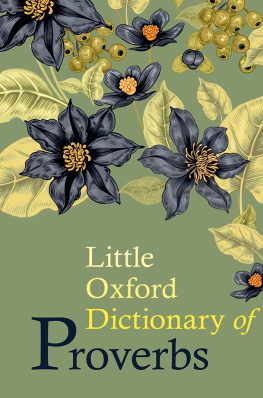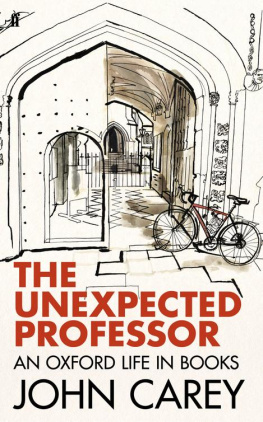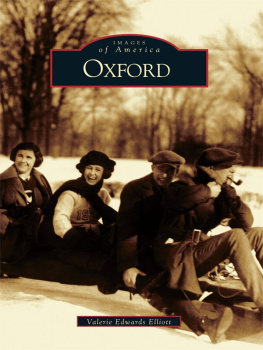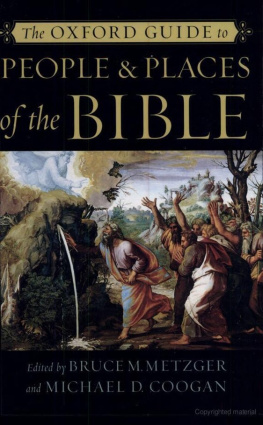
Acknowledgements
A big thank you to Balliol College, Jesus College, Lady Margaret Hall and Magdalen College for granting us permission to take photos. A huge thank you to Olly Wood for the photos in this book.
Note to the reader:
The author would like to make it clear that the views and opinions expressed in this book are hers alone and are not necessarily endorsed by Oxford University or any official institution. All efforts have been made by the author to provide the most up-to-date information and references at the time of publication.
Chapter 1
The University
I went to Oxford you say when someone asks you about uni. Then they take a step back and say Ooo! or Wow! or decide that, actually, they dont really want to talk to you. This is both the joy and the curse of going there. The word Oxford conjures up an image in peoples minds of you being the brightest of the bright, the best of the best.
In recent years, over 19,000 people have applied for around 3,200 undergraduate places, and more than 26,000 people have applied for about 5,400 graduate places. Each year, its becoming ever more competitive.
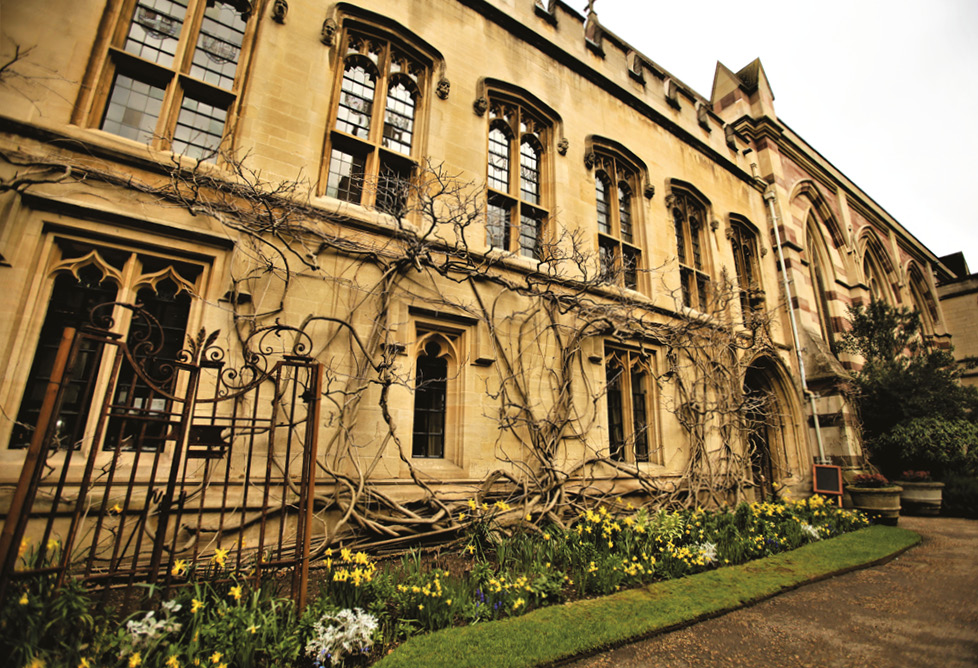
So, whats all the fuss about?
Well, as I told you, Oxford Uni is ranked as one of the top universities in the world which, no doubt, makes it pretty exclusive. To add to that, the architecture screams academia, tradition remains at the forefront and to make matters more complicated, it isnt set out like most UK universities.
If youre heading to the city, I agree that it would seem quite rational to type Oxford University into Google Maps; its the must-see sight, right? Well, yes, it is, but let me tell you, your map may well have you aimlessly wandering around in circles because if youre searching for one main campus, youre never going to find it. Thats because the University is collegiate.
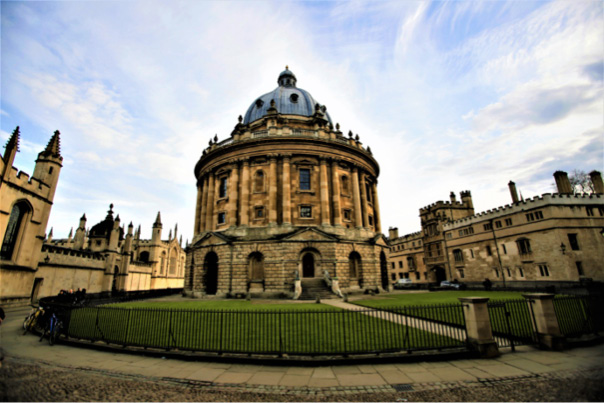
Oxford Uni has a unique structure steeped in history and tradition. The Chancellor acts as the ceremonial head of the whole university and the Vice-Chancellor is the principal officer who works to ensure its effective governance. To put it simply, the Vice-Chancellor is running the show!
Whilst students attend Oxford University theyre affiliated to one of the 38 colleges or 6 Permanent Private Halls, spread around the city, which are formed like mini campuses. The colleges are self-governing and independent, meaning they all have their own quirks, and the student experience will be slightly different at each one. The colleges vary, but the teaching standard and degree you leave with is exactly the same.

Permanent Private Halls are pretty similar to colleges; the main difference being they were originally founded by specific Christian denominations and are usually smaller and offer fewer courses. Students at private halls are full members of the Uni and can enjoy all of the same facilities the University has to offer. Private halls now welcome students from all faiths or none at all.
Generally, all references to colleges given throughout this book also refer to Permanent Private Halls.
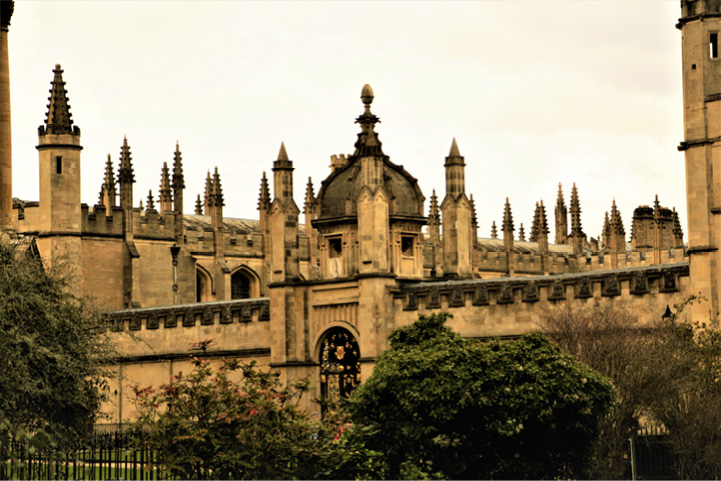

This map shows the location of the colleges and halls in Oxford that you can apply to as an undergraduate and postgraduate. The remaining colleges/halls are either postgraduate only, admit solely graduate fellows or accept undergraduates only as visiting students.

Oxford Uni functions on two levels. Whilst students have access to all that the wider uni has to offer, they also benefit from a smaller college community on a day-to-day basis.
The Colleges
Its hard to imagine that beyond the streets of the city lies a hidden world of colleges and halls. From picturesque quads, to vast parkland, medieval walls, gothic spires, breathtaking gardens, Victorian gargoyles and even modernist designs; nothing can prepare you for the experience that awaits.
Each college varies in architecture, size and location but all of them are self-contained hubs with an endless list of on-site facilities.
When applying to Oxford Uni, most people apply directly to a college that has caught their eye. Others choose to submit an open application and let the University decide. The reality is, its a numbers game; each college can only take a few students per subject, so theres a chance you wont even end up at the college you applied to.
Moving away from home can be scary but the collegiate system means from day one a personal, ready-made community is there to welcome you.
During your time at uni, your college really does become your everything. Its your home in first year: the place where you sleep, eat your meals, have your tutorials and chill out with your friends.

Oxford students will tell you that their college is the best!
What they maybe wont tell you, though, is that the college system comes into its element because of the workload. Now I hate to destroy the magic, but students are expected to work really, really, really hard, so being able to literally roll from your bed, to hall, to the library proves to be an essential time-saving device.
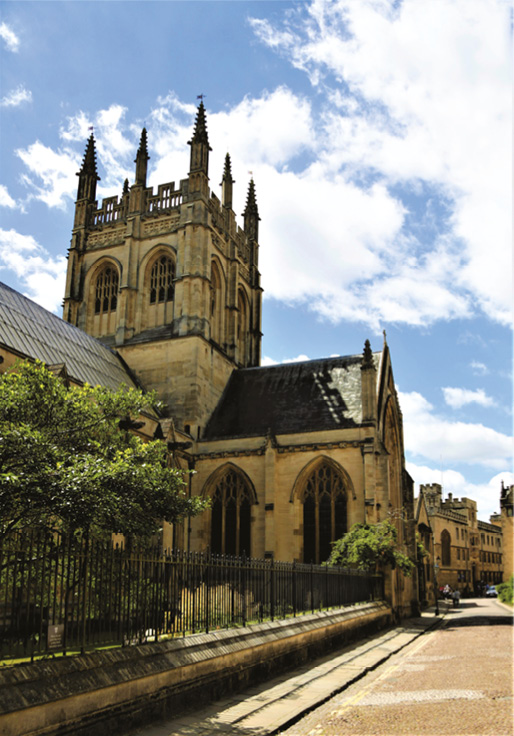
Colleges and Halls
All Souls College Balliol College Blackfriars Hall Brasenose College Campion Hall Christ Church College Corpus Christi College Exeter College Green Templeton College Harris Manchester College Hertford College Jesus College Keble College Kellogg College Lady Margaret Hall Linacre College Lincoln College Magdalen College Mansfield College Merton College New College Nuffield College Oriel College Pembroke College Regents Park College Somerville College St Annes College St Antonys College St Benets Hall St Catherines College St Cross College St Edmund Hall St Hildas College St Hughs College St Johns College St Peters College St Stephens House The Queens College Trinity College University College Wadham College Wolfson College Worcester College Wycliffe Hall
Fun Facts
- Balliol, University and Merton are the oldest Oxford colleges, in existence since the mid-13th century.
- In 1878 Lady Margaret Hall opened Oxford University to women for the first time.
- Now all Oxford Uni colleges are co-ed.
- Colleges have their own crests and college colours.




